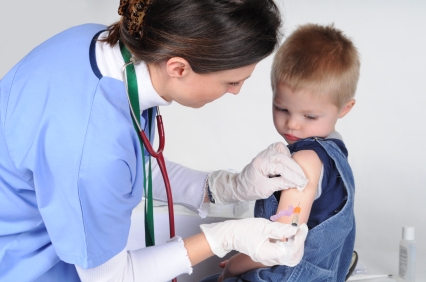Unlocking the Value of Combination Therapies



The OHE has just published reports on the vaccines markets in Australia and in the UK, originally prepared as case studies for a project funded by the Federal German Ministry of Health (Bundesgesundheitsministerium). The main findings of the UK study…

The OHE has just published reports on the vaccines markets in Australia and in the UK, originally prepared as case studies for a project funded by the Federal German Ministry of Health (Bundesgesundheitsministerium). The main findings of the UK study are outlined in this post.

The OHE has just published reports on the vaccines markets in Australia and in the UK. These were prepared as case studies for a project funded by the Federal German Ministry of Health (Bundesgesundheitsministerium.) The main findings of the UK study are outlined below.)
The immunisation programme offered at no cost by the NHS throughout the UK is published by the Department of Health (DH) in “Immunisation against Infectious Disease” (widely known as ‘The Green Book’). In addition to routine childhood immunisations, this programme includes some vaccines for subpopulations with particular risks. It does not include seasonal influenza vaccines. To date, all four countries in the UK — England, Northern Ireland, Scotland and Wales — follow these recommendations.
The UK has highly centralised approach to procuring vaccines. According to the 2009 NHS Constitution for England, the DH must provide, through the NHS, all vaccinations that are recommended by the Joint Committee on Vaccination and Immunisation (JCVI). In existence since 1963, the JCVI includes 16 members, most of whom are medical/scientific experts. (Plans are to increase membership soon, adding more lay members and a health economist.) Decisions are based on both science and economics, with the JCVI applying NICE’s incremental cost-effectiveness ratio (ICER) of £20,000-30,000 per QALY in its decisions. In addition to data submitted by the manufacturer, JCVI has access to research on the value of particular vaccines undertaken by the Health Protection Agency, a publicly funded organisation, and may seek advice from other experts. Once the JCVI makes a recommendation, the DH requests bids from suppliers, settles on the actual purchase price, and handles all the logistics of procurement and distribution.
Stakeholders interviewed for the study identified both advantages and disadvantages to the system.
1. All favoured the experienced and specialised JCVI as the evaluator, rather than NICE, both because of the difference between vaccines and curative prescription medicines and because of the deep expertise of the JCVI membership.
2. At the same time, however, many expressed dissatisfaction with the slowness and lack of transparency in the JCVI process. Manufacturers also noted that the DH and the JCVI could be more strategic, and perhaps speedier in the review and decision process, if “horizon scanning” discussions with manufacturers were possible.
3. That JCVI applies NICE’s approach to economic assessments makes data requirements clearer, but adopting the same narrow, NHS-only perspective was considered limiting. Although this may maximise cost-effectiveness, it is not necessarily the most efficient method for the budget of the DH or the public sector as a whole. Moreover, the current approach does not explicitly consider the beneficial societal impact of vaccination, which is both broader and different in kind than that of prescription medicines generally.
4. In effect, the current assessment approach creates a target price for manufacturers that may weaken competition, particularly because the number of suppliers for most vaccines is either small or entirely absent.
5. Where more than one manufacturer produces a vaccine, supply is safeguarded by splitting contacts across suppliers. This also reduces the risk for manufacturers in that even those who had offered a higher bid price still have access to a portion of the market.
Overall, the study found that all parties appear willing to continue with the current, centralised system, albeit with some tinkering around the edges.
Download Sussex, J. and Shah, K.K. (2010) The publicly funded vaccines market in the UK. OHE Consulting Report 10/01. London: Office of Health Economics.
An error has occurred, please try again later.
This website uses cookies so that we can provide you with the best user experience possible. Cookie information is stored in your browser and performs functions such as recognising you when you return to our website and helping our team to understand which sections of the website you find most interesting and useful.
Strictly Necessary Cookie should be enabled at all times so that we can save your preferences for cookie settings.
If you disable this cookie, we will not be able to save your preferences. This means that every time you visit this website you will need to enable or disable cookies again.
This website uses Google Analytics to collect anonymous information such as the number of visitors to the site, and the most popular pages.
Keeping this cookie enabled helps us to improve our website.
Please enable Strictly Necessary Cookies first so that we can save your preferences!
